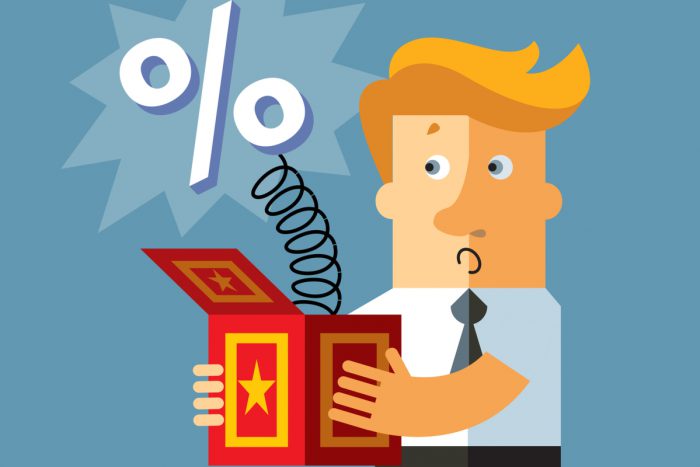—The Mortgage Report: Aug. 7—
Rate Complacency
- When you survey people about the direction of interest rates, they consistently expect “that rates will rise,” says Mortgage Professionals Canada (MPC) in a new report. That thinking is partly why 5-year fixed rates are so popular. But MPC’s recent survey indicates “that the expected amount of increase might be the smallest we’ve ever seen.” Are enough people now starting to believe that economic growth and inflation, and hence rates, are structurally limited? Or are people just getting complacent as we approach never-before-seen extremes of government borrowing and spending? “…Uncontrolled deficits with commensurate monetary expansion” cause BlackRock, for one, to “see inflation risks in coming years.” That, of course, portends rate hikes when the business cycle picks up momentum once again. It’s a song we’ve all heard before (that rates could surge), but this much is true; sudden rate hikes in 3-5 years could catch Canadians more off guard than at anytime in decades.
RBC Cuts
- The Golden Lion dropped a bunch of posted fixed rates Friday:
- 6mo convertible: 3.04% to 2.89%
- 1yr: 3.04% to 2.89%
- 2yr: 3.39% to 3.24%
- 3yr: 3.90% to 3.75%
- 4yr: 4.44% to 4.29%
- 5yr: 4.94% to 4.79%
- 7yr: 5.55% to 5.40%
- 10yr: 5.95% to 5.80%
- If BMO, CIBC or National Bank match RBC’s 4.79% posted 5-year fixed rate, the stress test will get 15 basis points easier. In other words, the minimum qualifying rate will drop from 4.94% to 4.79%, giving homebuyers a touch more buying power.
Renew in 2030
- A one-decade mortgage for a record-low price. Should you bite? The story…
Changing Expectations
- Here’s a further peek inside homeowners’ heads, courtesy of MPC’s aforementioned report:
- There’s been a “big” downshift in consumer expectations related to house price growth amid the pandemic. The expected rate of price growth by consumers is “the smallest we’ve ever seen,” the report said. Albeit, that may change with headlines like this.
- 14% of non-homeowners expect to purchase a house within the next year, double that of last year.
- MPC says this could reflect the “sharp reductions in mortgage interest rates, as well as desires to move to situations where social distancing is easier.”
- They add, however, that “not everyone who expects to buy has realistic prospects.”
- 20% of homeowners reported impaired income due to COVID-19
- Of those, 7% said they would not be able to make their full mortgage payments in coming months.
- From that, one might surmise that up to 1.4% (20% x 7%) could default on their mortgages due to COVID, but study author Will Dunning says “given how rapidly the scene is changing, I would not be willing to push data from July to a precise numeric conclusion about what might happen [in the future].”
Quotable
- “It may well be that the industry evolves over the next two to three months to things like making interest-only payments rather than the full [mortgage payment] deferral.”—Equitable Bank CEO, Andrew Moor, talking about mortgage deferrals during his company’s conference call.

 log in
log in

2 Comments
As much as I think the Canadian real estate market could have used a longer cooling off period, it doesn’t look like that’s going to happen according to some of the housing data out for July. This doesn’t bode well for the many young people today who will be relegated to renting for many years to come.
I put little weight in Will Dunning’s work. He seems to love implying things in his reports to get media attention, only to disclaim the data he used to make those implications.
It’s kind of like saying: “ B is true* “
* Assuming A is true*
* But my data can’t tell you if A is true.
To me, he is but a mouthpiece for his organization.